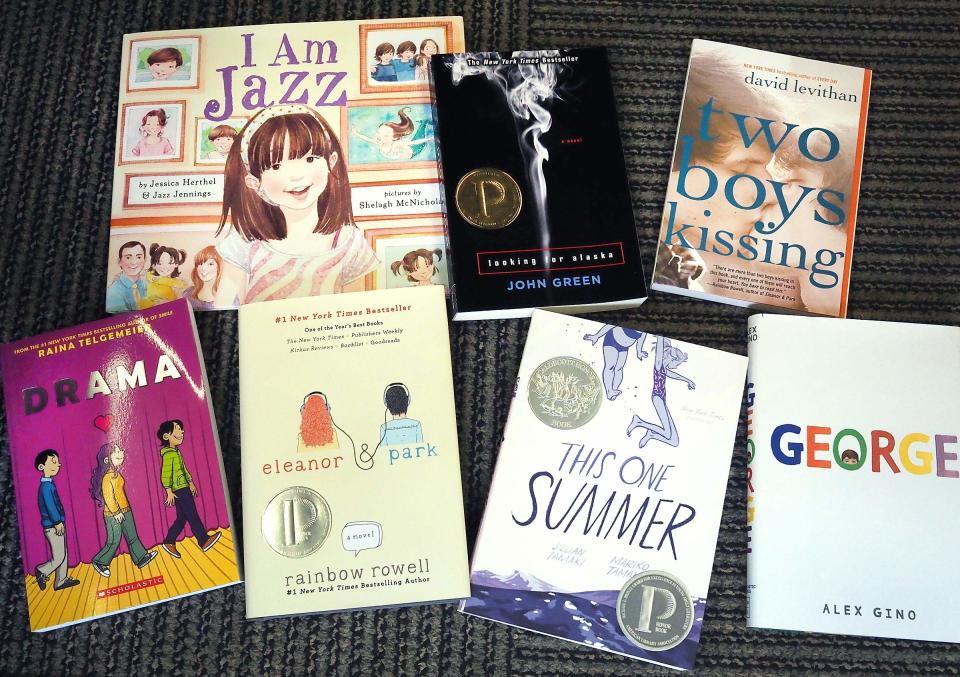Column: Banned books movement harms all of us
The N.H. Legislature passed HB2, and Governor Sununu signed it into law. Public schools, state agencies and state contractors are now effectively banned from providing instruction that frames racism, sexism or ableism as systemic issues that remain endemic in our society. (This ruling is referred to as “banned concepts” in many arenas.)
This law has brought book challenges to our schools and libraries; censorship and threats to academic freedom are heard in New Hampshire and in many other states. Teachers are needing to navigate curriculum restrictions for fear of losing their positions. They are clearly erring on the side of caution when deciding whether, for example, to deal with LGBTQ+ topics, or to assign “I Know Why the Caged Bird Sings” into their classrooms. Sadly, many of them are removing some powerful topics, books and writers from their curricula!

As a former high school teacher, I ask myself why the pressure to take issues of race, gender, sexuality and class out of the curriculum. My position as a teacher and designer of curriculum has always been, “What is the consequence of not including issues of racism, sexism, gender identity in the classroom?”
Blue View: Working families in NH are struggling
The consequence of omission, of a narrowing of perspective, of absence of historical and cultural facts and experiences: ignorance! Without wide exposure to a broad range of ideas, the diversity of humankind is marginalized; equity (fairness) is omitted; inclusion of the good, the bad, and the ugly is diminished. How, then, can we expect that justice can be an educated conclusion?
Authentic history and literature will include political and military campaigns, racism and sexism and homophobia that are part of real human history. Reality and knowledge are the only way to avoid repeatedly making mistakes in how we conduct our lives.
Column: Saying goodbye to my college child never gets easier
Undoubtedly some of what we learn when honest history is included in our human history will cause discomfort, anxiety, even guilt among students. Teachers are usually prepared for navigating difficult conversations about complex and even contradictory information. That is what education is all about: opening our eyes to the range of human experience, in all of its failures and successes!
Fearful folks who want to eliminate access to some aspects of human history and culture from the libraries and classrooms of our country are actually working against the very democratic principles of our Constitution.
The basic question to ask when challenges to libraries and schools arise, is, whose freedom is at stake? Parents have a right to question, even reject, an assignment for their own children; teachers will offer alternative readings. But parents do not have the right, nor should they, to demand the restriction for everyone! Libraries and schools are supported by taxpayers, that is, all of us. The objections must be heard, but they must not limit what is authentic, truthful reality in what we read and teach!
The Racial Unity Team, in collaboration with Oyster River Equity and Justice and the Exeter Public Library, will present a panel discussion addressing these very issues on Sept. 20, 6:30 p.m., to which the public is invited at the Exeter Public Library. At this program, the New Hampshire law restricting what may be/may not be taught will be reviewed, and a brief history of book censorship will be cited. Responses to book challenges by public and school librarians, will follow, as well as a summary of a legal challenge to the law by ACLU-NH. Suggestions for effective opposition to censorship and academic freedom will conclude the evening. For more information: Racial Unity Team.org
Patricia Yosha is a member of the Racial Unity Team.
This article originally appeared on Portsmouth Herald: Column: Banned books movement harms all of us

